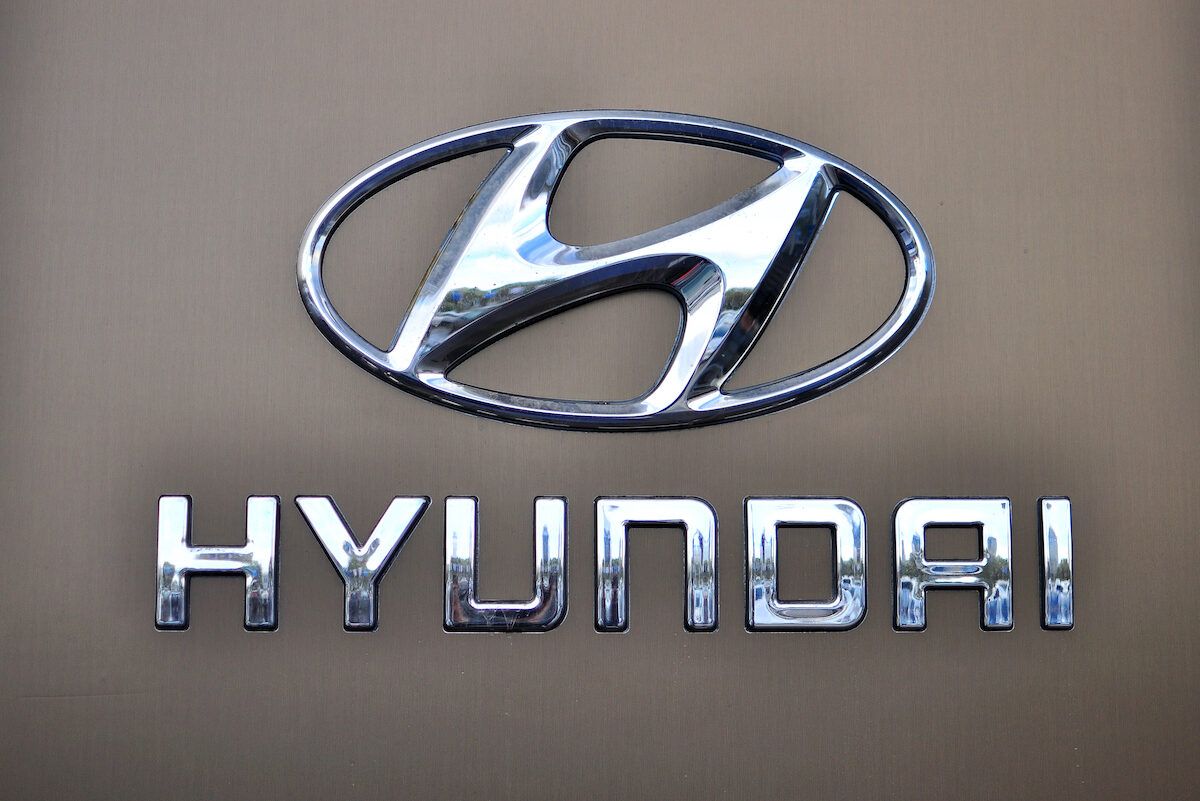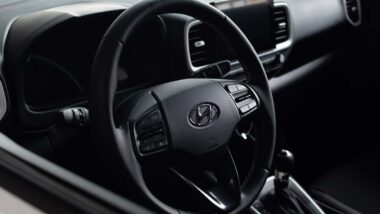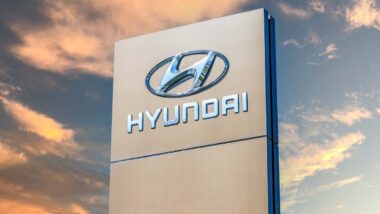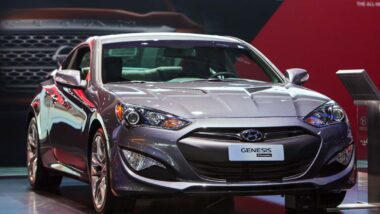
Update:
- A judge dismissed a class action lawsuit filed by a group of vehicle owners against Hyundai Motor Co. in a California federal court.
- The class action lawsuit claimed a number of Hyundai and Kia model vehicles contained an engine defect that caused them to use an excessive amount of oil.
- The vehicle owners argued the alleged defect, in addition to costing them money for the excess oil, caused the vehicles to stall and eventually fail.
- Court approval of the dismissal was not required as the class had not been certified nor proposed to be certified for purposes of a settlement, according to court documents.
Hyundai excessive oil consumption class action lawsuit overview:
- Who: A group of Hyundai and Kia vehicle owners are suing Hyundai Motor Co.
- Why: The drivers allege numerous models of Hyundai and Kia vehicles are equipped with defective engines that use excessive amounts of oil, stall and eventually fail.
- Where: The lawsuit was filed in a California federal court.
(April 20, 2022)
Hyundai makes numerous models of Hyundai and Kia brand vehicles with defective engines that use excessive amounts of oil, costing their owners huge sums of money, a new class action lawsuit alleges.
On Apr. 12, eight owners of Hyundai and Kia brand vehicles filed a class action lawsuit against Hyundai Motor Co. in a California federal court, alleging violations of federal warranty laws.
The Hyundai excessive oil consumption lawsuit alleges that numerous models of the automaker’s vehicles are equipped with defective Nu, Gamma, Theta, Lambda and Kappa engines.
The defective engines allegedly use excessive amounts of oil, stall and eventually fail. The drivers say Hyundai should have issued a recall for the vehicles a long time ago but hasn’t.
As a result, thousands of Hyundai and Kia owners and lessees have allegedly been forced to constantly check the oil levels, and oil must be added to the engines more frequently than even the owner’s manuals recommend, Car Complaints reports.
The engine issue has flow-on effects like reduction in engine lubrication due to crankshaft submersion and gaskets and seals damage, which leads to oil leaks.
The plaintiffs also claim that oil in their vehicles migrates to places where it shouldn’t be, damaging the combustion and exhaust systems.
This allegedly causes “abnormal wear of engine parts, oversaturation of carbon and deposits of oil sludge, ultimately requiring a costly engine rebuild or replacement.”
Automaker should honor warranty claims outside terms, Hyundai class action says
The plaintiffs allege that Hyundai should honor customers’ warranty claims even when the warranties have expired.
According to the lawsuit, Hyundai can’t adequately repair the oil consumption problems and doesn’t offer any reimbursement for out-of-pocket costs caused by the issue.
The class action states customers must suffer through long wait times for replacement parts, “and in most cases do not receive required engine replacements.”
The cars with the allegedly faulty engines include the 2012-2020 Hyundai Elantra, 2009-2018 Hyundai Genesis Coupe, 2019-2021 Hyundai Kona, 2020-2021 Hyundai Palisade, 2010-2012 and 2015-2021 Hyundai Santa Fe, 2009-2010 and 2015-2021 Hyundai Sonata, 2011–2021 Hyundai Sonata Hybrid, 2010-2013 and 2015-2021 Hyundai Tucson, 2011-2021 Hyundai Veloster, 2020-2021 Hyundai Venue, 2010-2021 Kia Forte, 2017-2020 Kia Niro, 2011-2020 Kia Optima and Optima Hybrid, 2012-2021 Kia Rio, 2011-2020 Kia Sorento, 2012-2021 Kia Soul, 2011-2020 Kia Sportage, 2018-2021 Kia Stinger and 2022 Kia K5.
Meanwhile, Hyundai has expanded its recall of vehicles with an exploding seat belt part issue that has caused multiple injuries to include 6,240 of its 2021-2022 Elantra and 2020 Accent vehicles.
The plaintiffs are represented by Nye, Stirling, Hale & Miller LLP, Sauder Schelkopf LLC and Walsh, PLLC.
The Hyundai Oil Consumption Lawsuit is Cho, et al., v. Hyundai Motor Company, LTD., et al. in the U.S. District Court for the Central District of California.
Are you one of the drivers affected by an allegedly faulty Hyundai engine? Let us know in the comments!
Don’t Miss Out!
Check out our list of Class Action Lawsuits and Class Action Settlements you may qualify to join!
Read About More Class Action Lawsuits & Class Action Settlements:















3,221 thoughts onHyundai class action over excessive oil consumption dismissed
Have a 2016 Hyundai Sonata and we have started to jave the oil consumption issue. We were told it is normal for the car to burn 1qt per 1,000 miles. Didn’t sound right since I have never had a cars oil light come on 2,000 miles after an oil change.
I have a 2017 Hyundai Santa Fe. I always thought that the place I was getting an oil change from would “forget” to put oil in my car, so I started bringing it to the dealership. On my way to work a few weeks before my scheduled oil change my car started to stall and act funny. I work at a public transit company. I asked one the mechanics to look at my car. The mechanic told me there was no oil in my car at all. I explained it wasn’t even time for an oil change yet. I asked my cousin who works with me to go get oil for my car on his break so mechanic could put it in. The mechanic did so but told me it was too late, my engine was already making a knocking noise and the engine was ruined. I told him that no lights ever came up on my dash to indicate I was low on oil or that something might be wrong at all. I started to research the problem to see if other people were having the same problem turns out yes a lot of people were. I took it to the dealership and explained the whole situation. They only confirmed with mechanic told me and said there was nothing they could do. They quoted me $12,600 for an engine replacement. I called the corporate Hyundai office they told me the car was out of warranty at 141,xxx miles and they could not doing anything because there was no recall on the engine. Please include me on this class action lawsuit. This is ridiculous that Hyundai and various others know about this problem and they have yet to knowledge or fix it
Yes we have a 2016 kia optima, and it is eating oil i still have alot of miles left before my oil change! Yes kia told us since we are second owners that there was nothing they can do! And i am putting quarts of oil in my car! Please help us! This is very frustrating! Just fix and we will all go away! 😢
I have a 2017 Sonata also and experiencing the oil consumption issue. I did the carbon cleaning and still burns 1.75 quarts per 1000 miles. All throughout the test prior to carbon cleaning my car avg 1.5 to 2.0 quarts per 1000 miles. They denied me for engine replacement, since it wasn’t the engine rod issue. The dealership made it seem like going through this process would help me get a new engine, but that wasn’t true.
My name is Anita Dianne McAfee and I am the owner of a 2021 Kona by Hyundai. My vehicle is currently at the dealership of purchase and have been for over a month now. Initially, I had to rent cars to attend a funeral in Atlanta, GA of a very close relative then to get my 7 year old twins to and from school and other sports activities. Communicating with the local dealership and the Hyundai Manufacturer has caused a great deal of stress and strain. I have been able to get a rental car provided by the service department but it a V6 Volkswagen and the amount I’m paying in gasoline is unreal. The upfront expenses has caused a strain on my finances causing me to miss monthly bills including my car payment. I sent documents to get reimbursed and was promised a checked that was mailed out last Friday. Please add me to this lawsuit.
Yep, Have a 2014 Tucson. IN 2017, Dealer left oil plug off on routine pil change causing the original engine to burn up. Hyundai replaced the engine and after a few month experienced the oil consumption problem. In addition to burning way too much oil. The low oil indicator never lights up so the damage is going undetected. Hyundai is playing dumb like this is some anomaly. I would be very interested is joining the suit and getting this properly dealt with.
Add me to list I have a 2017 Hyundai Sonata that has drunk oil and even burnt oil and was told my piston rings are slowly going
Please add me. I have 2017 Kia Optima. The oil burned out excessively after all 3 consumption tests. Dealers/warranty company not picking up the claim. Been waiting for a response since March 2022
Am having the same problem I have a 2017 Hyundai sonata my oil is completely out Way before my service is due now I have to checking my oil regularly to make sure oil is in there this make very worried about my car I do my service every time it is due . Who do I need to speak too
My friends 2016 Tucson just blew up. There was absolutely no warning . No oil lights came on